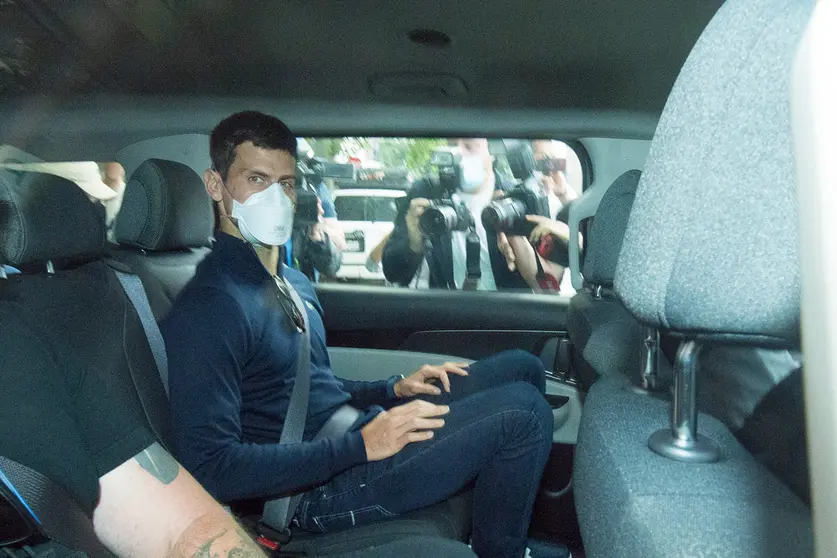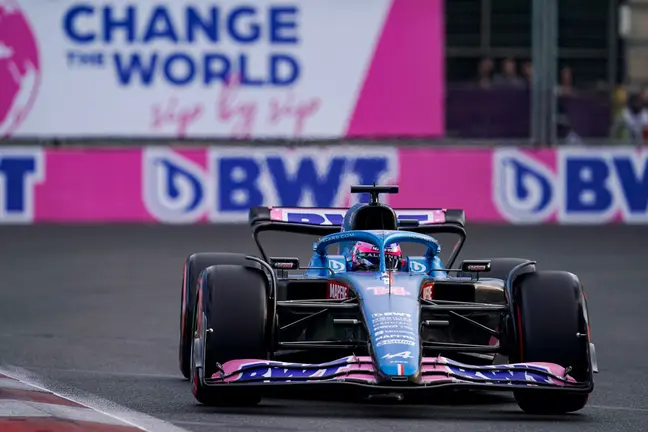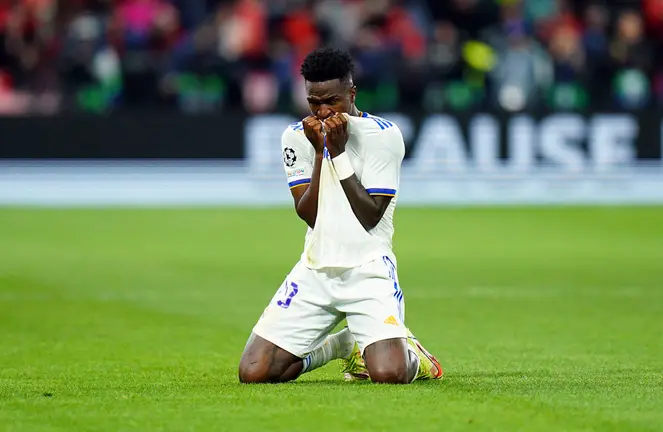Novak Djokovic will be deported from Australia after failing to overturn the decision to cancel his visa.
The verdict from Chief Justice James Allsop came following a unanimous decision from the three judges hearing the case at the Federal Court of Australia on Sunday.
The decision means nine-time champion Djokovic will not be defending his title at the Australian Open, which starts on Monday, and is banned from Australia for three years – although that can be waived.
Djokovic had the option of trying to take the legal fight further but said in a statement he was “extremely disappointed” by the decision but would cooperate with the deportation.
He said: "I will now be taking some time to rest and to recuperate, before making any further comments beyond this.
“I am extremely disappointed with the ruling to dismiss my application for judicial review of the minister’s decision to cancel my visa, which means I cannot stay in Australia and participate in the Australian Open.
“I respect the court’s ruling and I’ll cooperate with the relevant authorities in relation to my departure from the country.
“I am uncomfortable that the focus of the past weeks has been on me and I hope that we can all now focus on the game and tournament I love. I would like to wish the players, tournament officials, staff, volunteers and fans all the best for the tournament."
The verdict
Chief Justice Allsop delivered the verdict just before 6 pm in Melbourne, after the court deliberated for around two hours following submissions from both parties.
Immigration Minister Alex Hawke re-cancelled Djokovic’s visa on Friday using personal powers after the world number one had won an appeal against the initial decision to bar him from the country when he arrived last week.
Djokovic, who spent another night at the Park detention hotel on Saturday, had been due to face compatriot Miomir Kecmanovic on Monday but has been replaced in the draw by lucky loser Salvatore Caruso.
Hawke’s decision on Friday was unexpectedly based not on the validity or otherwise of Djokovic’s exemption from Covid-19 vaccination, which was the reason for the initial cancellation, but on the notion his presence in the country could stoke anti-vaccination sentiment, making him a danger to public health, as well as civil unrest.
To succeed in an appeal, Djokovic’s legal team had to prove that Hawke had either acted outside his powers or that his decision was irrational, and Chief Justice Allsop made a point of stressing the judges were not able to assess the merits of the case.
Nick Wood, acting for the Serbian, focused on three aspects – that there was no evidence his presence would stoke anti-vaccination sentiment, that evidence was also lacking for the idea Djokovic opposes vaccination and that Hawke had not considered whether deporting the nine-time Australian Open champion would lead to increased support for the anti-vaccination cause.
Wood said: “Not a single line of evidence in the material provided any specific or logical foundation whatsoever that the mere presence of Mr Djokovic in Australia in itself may somehow foster anti-vaccination sentiment.”
Global headliness
Djokovic created global headlines early in the pandemic for being quoted as saying he was “opposed to vaccination”, although he later clarified that he was against being forced to take a vaccine to travel to tournaments and would keep an open mind on the issue.
Wood criticised Hawke for not referencing that clarification, while he argued the response to the overturning of the initial visa cancellation, which included police pepper spraying Djokovic supporters on the street, demonstrated that deporting him could have a negative impact on public health and public order rather than the other way around.
Hawke’s lawyer Stephen Lloyd spent a considerable amount of time countering that argument.
“The minister was aware his decision to cancel would result in some level of further unrest but the minister was principally concerned that Mr Djokovic’s presence would encourage people to emulate his position and that would put the health of Australians at risk,” said Lloyd.
On the issue of whether it was fair to present Djokovic as taking an anti-vaccination stance, Lloyd said: “His ongoing non-vaccination status is open to infer that a person in the applicant’s position could have been vaccinated if he wanted to be.
“Even before vaccines were available he was against it – his prima facie position was to be against them.”
Anti-vaccination 'hero'
He made reference to anti-vaccination groups “treating the applicant as a hero” as he moved on to Hawke’s central claim of Djokovic’s presence having the potential to negatively impact public health.
Lloyd said: “He’s a high-profile person who is in many respects a role model for many people. His presence in Australia would present more strongly to Australians his anti-vaccination views.
“People use high-level athletes to promote ideas and causes all the time. His connection to a cause, whether he wants it or not, is still present.”
Sympathy for Djokovic has been in short supply from both the Australian public and his fellow players, many of whom were reluctant to get vaccinated but did so anyway.
He has found an unlikely ally in Nick Kyrgios, who has been a fierce critic of the 34-year-old on other matters but has turned his ire on his country for their treatment of Djokovic.
Kyrgios reacted to the result with a facepalm emoji on Twitter.
France’s Alize Cornet wrote: “I know too little to judge the situation. What I know is that Novak is always the first one to stand for the players. But none of us stood for him. Be strong @DjokerNole”.










